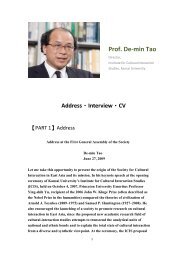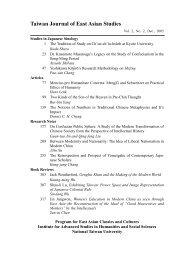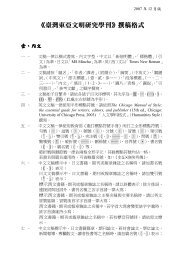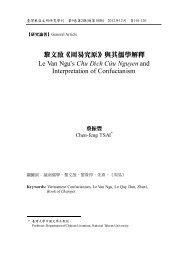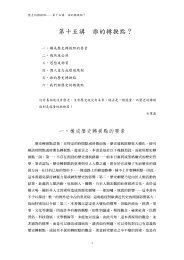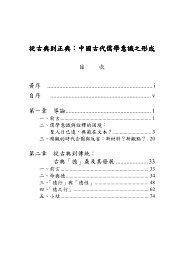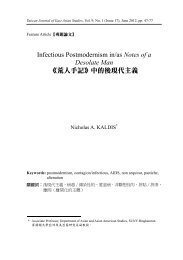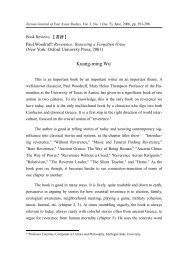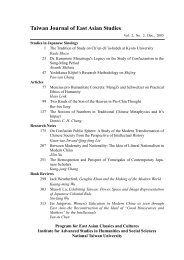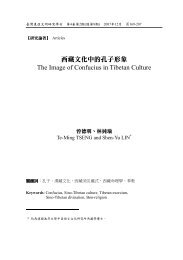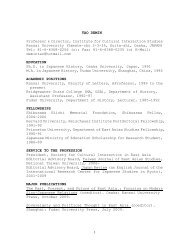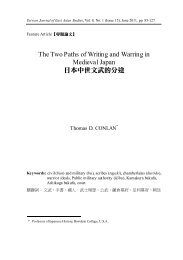臺灣東亞文明研究學刊 - 東亞經典與文化研究計畫 - 國立臺灣大學
臺灣東亞文明研究學刊 - 東亞經典與文化研究計畫 - 國立臺灣大學
臺灣東亞文明研究學刊 - 東亞經典與文化研究計畫 - 國立臺灣大學
Create successful ePaper yourself
Turn your PDF publications into a flip-book with our unique Google optimized e-Paper software.
232 Taiwan Journal of East Asian Studies, Vol. 4, No. 2 (Iss. 8), Dec., 2007<br />
between the kings of medieval Europe and their baronial subjects and had<br />
succeeded in holding royal power in check thus preserving the liberties of the<br />
subject. That balance had been upset by the revival of letters in the thirteenth<br />
century, by the growth of luxury and by the alienation of baronial estates, as the<br />
barons sought ways of paying for a new consumption-orientated style of life. It was<br />
a disastrous moment in Europe's history. Luxury and the commerce it generated,<br />
had corrupted the manners of Europe's baronial class and had fatally undermined its<br />
economic and military power base. It had destroyed the fundamental principle on<br />
which the feudal constitution rested, tipping the balance of power and property in<br />
favour of kings and threatening the liberties of subjects and nations alike. There was<br />
nothing nostalgic about Fletcher's thinking, no longing for a return to an age that<br />
was now irrevocably lost. The message of the decline of European feudalism was<br />
that it was up to modern rulers and patriots to devise new ways of ensuring that the<br />
forces which had brought about the destruction of the feudal world could be used to<br />
lay the foundations of a free state system appropriate to the conditions of the<br />
modern age.<br />
In a remarkable essay on the decline of the Spanish monarchy, Fletcher<br />
analysed the strengths and weaknesses of the enormous monarchies of the modern<br />
age. He saw the Spanish Empire as a rag-bag of disconnected political units located<br />
in Europe and the New World which required the deployment of massive military<br />
naval and financial resources to maintain them. These were resources which Spain<br />
could scarcely afford and it was this that accounted for the waning of Spanish<br />
power. For Fletcher, the lessons of Spain were that enormous monarchies would<br />
only survive and prosper if they were much more tightly integrated geographically,<br />
administratively and economically but that they would only avoid the disaster of<br />
becoming despotisms if their provinces and dependencies possessed viable<br />
economies and potentially co-operative elites. The unwritten, ominous message<br />
behind this analysis was that only France, and possibly England among the present<br />
states of Europe could hope to fulfil these conditions and, as Fletcher was well<br />
viii



